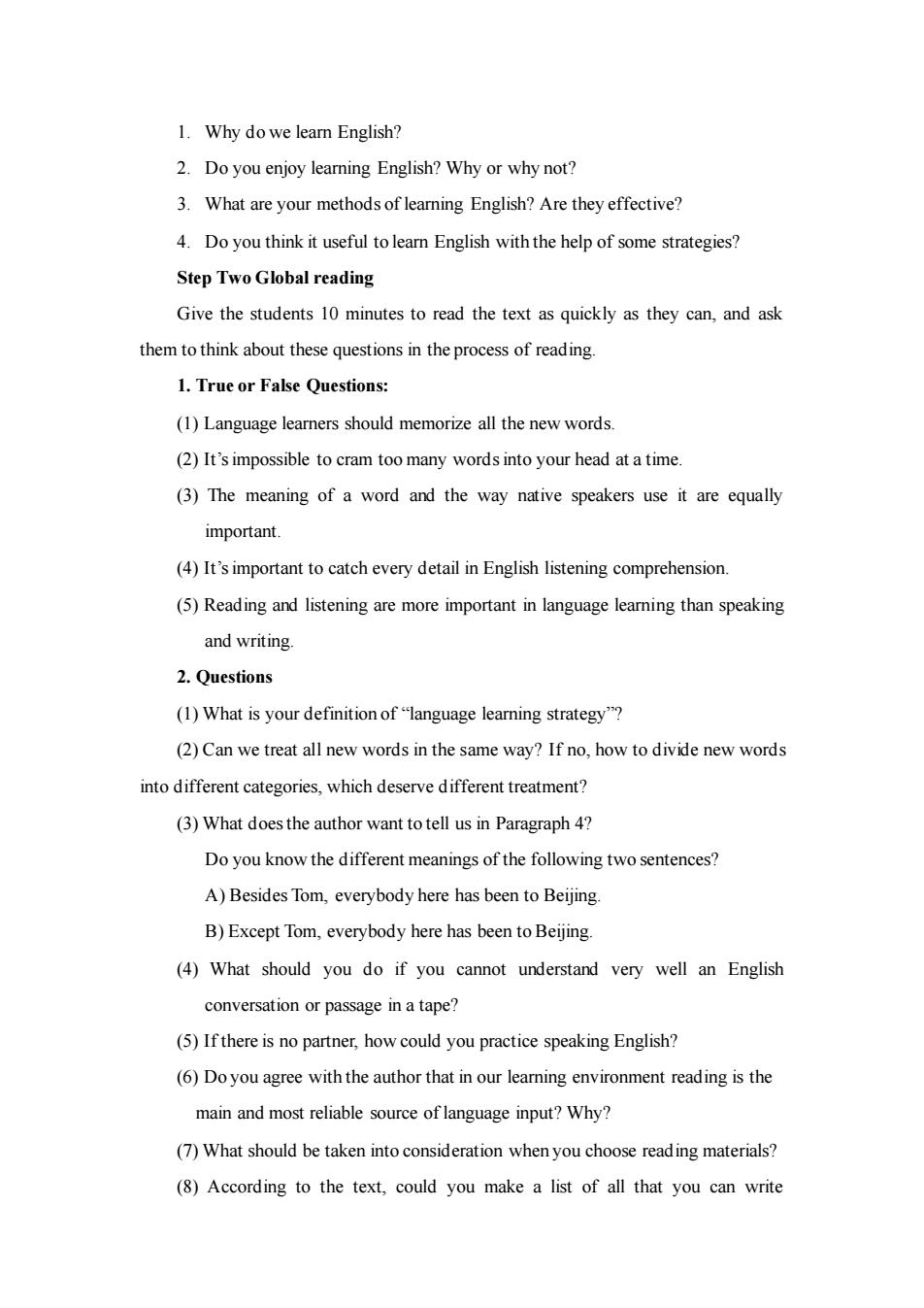正在加载图片...

1.Why do we learn English? 2.Do you enjoy learning English?Why or why not? 3.What are your methods of learing English?Are they effective? 4.Do you think it useful to leam English with the help of some strategies? Step Two Global reading Give the students 10 minutes to read the text as quickly as they can,and ask them to think about these questions in the process of reading. 1.Trueor False Questions: (1)Language leamers should memorize all the new words. (2)It's impossible to cram too many words into your head at a time (3)The meaning of a word and the way native speakers use it are equally important. (4)It's important to catch every detail in English listening comprehension. (5)Reading and listening are more important in language leaming than speaking and writing. 2.Questions (1)What is your definition of"language learning strategy? (2)Can we treat all new words in the same way?If no,how to divide new words into different categories,which deserve different treatment? (3)What does the author want totell us in Paragraph 4? Do you know the different meanings of the following two sentences? A)Besides Tom,everybody here has been to Beijing. B)Except Tom,everybody here has been to Beijing. (4)What should you do if you cannot understand very well an English conversation or passage in a tape? (5)Ifthere is no partner,how could you practice speaking English? (6)Do you agree with the author that in our learning environment reading is the main and most reliable source of language input?Why? (7)What should be taken into consideration whenyou choose reading materials? (8)According to the text,could you make a list of all that you can write1. Why do we learn English? 2. Do you enjoy learning English? Why or why not? 3. What are your methods of learning English? Are they effective? 4. Do you think it useful to learn English with the help of some strategies? Step Two Global reading Give the students 10 minutes to read the text as quickly as they can, and ask them to think about these questions in the process of reading. 1. True or False Questions: (1) Language learners should memorize all the new words. (2) It’simpossible to cram too many words into your head at a time. (3) The meaning of a word and the way native speakers use it are equally important. (4) It’s important to catch every detail in English listening comprehension. (5) Reading and listening are more important in language learning than speaking and writing. 2. Questions (1) What is your definition of “language learning strategy”? (2) Can we treat all new words in the same way? If no, how to divide new words into different categories, which deserve different treatment? (3) What does the author want to tell us in Paragraph 4? Do you know the different meanings of the following two sentences? A) Besides Tom, everybody here has been to Beijing. B) Except Tom, everybody here has been to Beijing. (4) What should you do if you cannot understand very well an English conversation or passage in a tape? (5) If there is no partner, how could you practice speaking English? (6) Do you agree with the author that in our learning environment reading is the main and most reliable source of language input? Why? (7) What should be taken into consideration when you choose reading materials? (8) According to the text, could you make a list of all that you can write